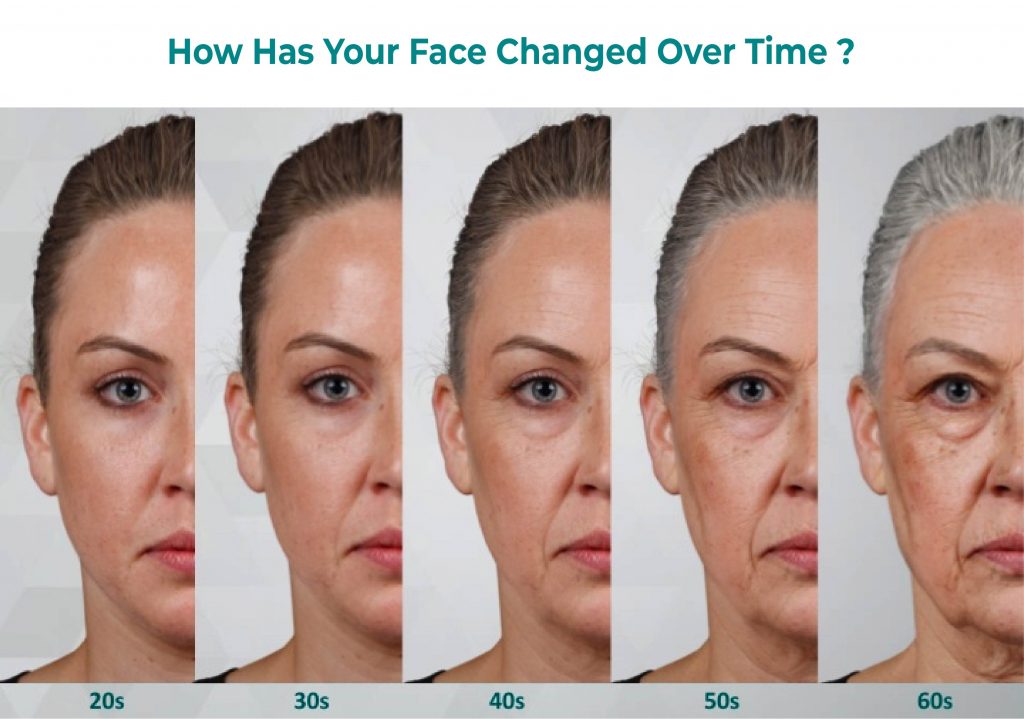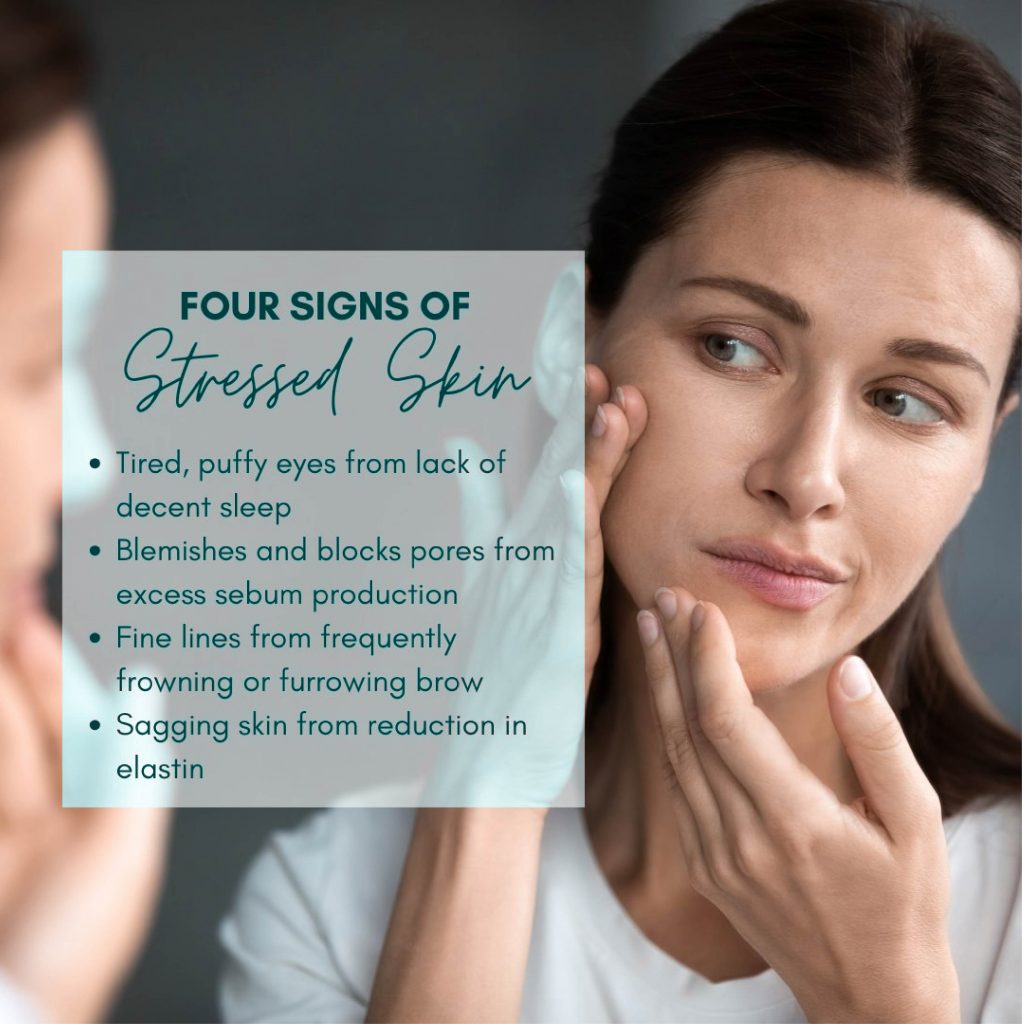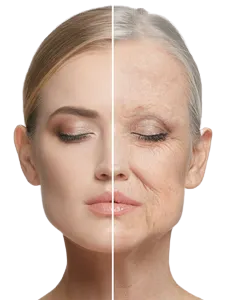
As we age, our skin begins to lose its elasticity and firmness. Fine lines and wrinkles start to appear and our skin starts to sag. But at what age does our face change the most?

1. At What Age does our face change the most?
For most people, the changes in their faces are gradual. But there are certain ages when our faces change more noticeably. For women, the 30s are often a time when their skin starts to show signs of aging. This is because the skin’s collagen and elastin production starts to decrease during this decade.
For men, the 40s is often when they start to see changes in their faces. This is because testosterone levels start to decline during this decade, which can lead to a loss of muscle mass and a decrease in collagen production.
Sagging skin is a common problem among people who have lost a lot of weight. The skin around the stomach, thighs, and arms is most likely to sag. Sagging skin can be very frustrating, but there are ways to tighten it.

2. What Age does skin start to sag and lose elasticity?
As we age, our skin loses elasticity and begins to sag. This process begins as early as our mid-20s, but it becomes more noticeable as we approach our 40s and 50s.
There are several factors that contribute to skin sagging, including gravity, sun damage, smoking, and poor diet. While there’s no way to completely prevent skin sagging, there are some things you can do to slow the process down.
To keep your skin looking its best, be sure to protect it from the sun with sunscreen or clothing, quit smoking, and eat a healthy diet that’s rich in antioxidants. These simple steps will help you keep your skin looking young and radiant for years to come.
3. Can stress cause sagging skin?
Aging isn’t the only factor that can cause your skin to sag. If you don’t take good care of your skin, it will eventually lose its elasticity and begin to sag.
One of the biggest contributing factors to sagging skin is stress. When you’re constantly under stress, your body produces cortisol, which breaks down collagen and elastin. This makes your skin less firm and more likely to sag.
If you want to keep your skin looking its best, it’s important to manage stress levels. Try relaxation techniques like yoga or meditation and get plenty of restful sleep. You should also eat a healthy diet and drink plenty of water to keep your skin hydrated.

4. How can I tighten my sagging skin?
There are many ways that you can tighten your sagging skin. One way is to use a product that contains retinol. Retinol is a form of vitamin A and it can help to stimulate the production of collagen. This will help to improve the elasticity of your skin and make it appear firmer. Another way to tighten your skin is to use a radio frequency device. This device uses energy to heat up the deep layers of your skin. This will cause the collagen fibers to contract, which will result in tighter skin. Finally, you can also get tighter skin by undergoing a laser treatment. This treatment will stimulate the growth of new collagen fibers, which will help to tighten your skin.
While there are many commercial products and procedures that claim to tighten sagging skin, there are also some simple natural remedies that can help.
One of the best ways to tighten sagging skin is to improve your diet. Eating plenty of fruits and vegetables, which are rich in antioxidants and vitamins A and C, can help promote collagen production and keep your skin looking firm and youthful. In addition, staying hydrated by drinking plenty of water will also help to plump up your skin and reduce the appearance of wrinkles.
Exercise is another great way to naturally tighten your skin. Not only does it tone your muscles, but it also increases circulation and helps deliver oxygen and nutrients to your skin cells.
What is best for sagging skin?
Sagging skin is a common cosmetic concern. There are many factors that can contribute to sagging skin, including age, weight loss, and pregnancy. While there are a number of different treatments available, it can be difficult to know which one is best for you.
There are a few things to consider when choosing a treatment for sagging skin. First, you need to determine the cause of the problem. If it is due to age or weight loss, you may want to consider surgery or other invasive procedures. However, if the cause is pregnancy or another issue that will eventually resolve itself, there are less invasive options available, such as creams and gels.
Second, you need to consider your budget. Surgery and other invasive procedures can be quite expensive, so if you are on a tight budget, you may want to consider less expensive options.
There are many treatment options for skin tightening:
- Profhilo or Profhilo Body
- Rejuran Healer
- Filler rejuvenation ie. Hyaluronic acids, Radiesse, Ellanse
- Laser Resurfacing
- Tightening device like Radiofrequency device or HIFU therapy
- Thread lift ie. PDO, PCL, PLLA – face and neck lift
- Surgical Procedure ie. Tummy tuck, face lift surgery

5. Does loose skin after weight loss go away?
Losing weight is a great accomplishment that comes with many benefits. However, one downside is loose skin. This can be especially noticeable in people who have lost a significant amount of weight. The good news is that loose skin does eventually go away on its own.
It may take some time for the skin to adjust and return to its normal state. The process can be hastened by maintaining a healthy lifestyle and keeping the skin moisturized. In the meantime, there are some fashion tricks that can help camouflage loose skin. Wearing clothing that is fitted but not tight will help to minimize the appearance of sagging skin.
If you are concerned about loose skin after weight loss, talk to your doctor or dermatologist. They can give you specific advice on how to care for your skin and help you achieve your desired results.
6. How long does it take for loose skin to tighten?
How long does it take for loose skin to tighten? It depends on several factors, including how much weight you’ve lost and how old you are. If you’ve lost a significant amount of weight, it may take several months or even years for your skin to adjust and tighten. Age also plays a role in how quickly your skin will tighten. Younger people tend to have skin that snaps back more quickly than older people.
There are some things you can do to help speed up the process of tightening your loose skin. Exercise can help tone the muscles underneath the skin and make it more elastic.
7. Can collagen reverse sagging skin?
As we age, our skin begins to lose its elasticity and collagen production slows down. This can cause our skin to sag and wrinkles to form.
But, did you know that there are ways to help reverse the signs of aging? Collagen is one of the best ways to keep your skin looking young and plump.
Collagen is a protein that helps to support the structure of our skin. When we lose collagen, our skin begins to sag and wrinkles form.
But, there are ways to help stimulate collagen production and keep your skin looking its best.
8. What foods help tighten loose skin?
As we age, our skin loses elasticity and begins to sag. This process begins as early as our mid-20s, but it becomes more noticeable as we approach our 40s and 50s. Gravity also takes its toll, causing our skin to sag. But there are foods that can help tighten loose skin and improve its overall appearance.
There are several factors that contribute to skin sagging, including gravity, sun damage, smoking, and poor diet. While there’s no way to completely prevent skin sagging, there are some things you can do to slow the process down.
To keep your skin looking its best, be sure to protect it from the sun with sunscreen or clothing, quit smoking, and eat a healthy diet that’s rich in antioxidants. These simple steps will help you keep your skin looking young and radiant for years to come.
One food that is great for tightening skin is cucumber. Cucumber is high in water content, which helps to hydrate and plump the skin. It also contains silica, which is known for its ability to boost collagen production. Collagen is a protein that gives our skin its structure and strength.
Another food that can help tighten loose skin is salmon. Salmon is packed with omega-3 fatty acids, which have been shown to help improve skin elasticity. It also contains astaxanthin, a powerful antioxidant that can help protect the skin from damage caused by free radicals.

9. What Vitamins help tighten loose skin?
As we age, our skin begins to lose its elasticity and can start to sag. This is especially true if we have lost a significant amount of weight. There are several vitamins that can help to tighten loose or sagging skin.
Vitamin C is an antioxidant that helps to protect the skin from damage and can also help to boost collagen production. Collagen is a protein that helps to keep the skin looking firm and plump. Vitamin C can be found in citrus fruits, tomatoes, broccoli, and leafy greens.
Vitamin A is another vitamin that can help with collagen production and cell turnover. This vitamin can be found in sweet potatoes, carrots, spinach, and kale.
Vitamin E is a fat-soluble vitamin that helps to nourish and protect the skin.

10. Does Vitamin C tighten skin?
As we age, our skin begins to lose its elasticity and firmness. This can be due to a number of factors, including exposure to sunlight, smoking, and poor diet. However, there are some things you can do to help tighten sagging skin. One of them is to make sure you’re getting enough vitamin C.
Vitamin C is important for the production of collagen, which is what gives our skin its strength and elasticity. When we don’t get enough vitamin C, our body can’t produce as much collagen and our skin begins to sag.
There are a few ways to make sure you’re getting enough vitamin C. You can take supplements, or you can eat foods that are rich in vitamin C, such as oranges, strawberries, kale, and broccoli.


